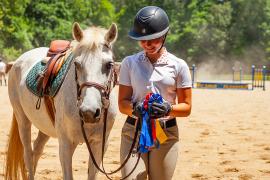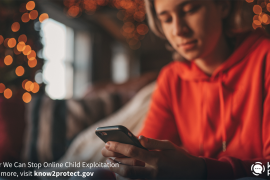By establishing prevention programs and curricula, camp directors can help reduce the risk of misconduct and abuse. Camp leaders should consider implementing consent education in their program that is robust, ongoing and meets the needs of each child based on their age.
What Is Consent Education?
Consent education is the process of using specific language and policies that are instilled in your camp community to create a deep understanding of the concept of consent. Based on the practice of radical empowerment and empathy, consent education uses the guiding principles that a person is the captain of their body, and nobody can touch, change, feed or enter that body without the captain's permission. Discussions about consent do not need to be based around sexuality. There are plenty of opportunities at camp to teach children about consent and create a safe camp experience.
Discussing Consent and Building an Inclusive Camp
As camp directors, we must do what we can to prevent children from harm. Camps should offer an inclusive environment that recognizes both differences and strengths. To foster this environment, camp directors and staff should continually reinforce the concept of consent. For example, encouraging younger children to develop a habit of asking for and vocalizing consent — a verbal and affirmative yes — when it comes to touching or hugging can help make it clear that they have control over their bodies and that people should respect physical boundaries.
Teaching Consent as Part of Ongoing Camp Curricula
Consider teaching consent in the context of permission and respect. Every person has the right to accept or deny another person's touch or personal-space intrusion. At your camps, you're likely already teaching consent. For example, staff is trained to ask for consent when offering to correct a camper's swim stroke or climbing gear. But consider how much more empowering and impactful your consent education could be. Through role-play and camp demonstrations, your camp can create an environment that promotes open dialogue and inspires participants to be their best selves.
When building the curriculum for your camps, it’s important to consider what strategies are best suited for each age group. For preschoolers and younger children, consent education is about laying the social-emotional groundwork through modeling and empowerment. For elementary school-aged children, the conversation may focus more on breaking down what consent is and practicing voicing and giving consent. And for middle school and high school students, it can be helpful to begin teaching consent in the context of romantic relationships, re-emphasize the importance of talking to a trusted adult and start defining what sexual harassment is.
Creating a Safe Camp Experience
Each year, millions of children and adults attend camps. Providing a safe camp experience requires policies and procedures specifically developed to screen, educate and monitor employees and volunteers. The American Camp Association maintains a database that can help organizations navigate state-specific laws applicable to camps, and with the help of an attorney, can serve as a resource when developing a child protection policy. At a minimum, camps should create a policy that includes screening processes, statements of restriction, supervision, rules of behavior, and abuse notification and reporting.
Every camp is unique, and creating a safe camp experience for every camper, employee and volunteer involves ongoing training. Train today, train tomorrow and train again to minimize risk and demonstrate your commitment to providing a safe environment.
This blog was sponsored by Active Network.
Periodically, the American Camp Association (ACA) makes timely and relevant information about products and services available to its members so they can make informed decisions for their camps. However, the ACA does not endorse products, services, or companies.
The views and opinions expressed by contributors are their own and do not necessarily reflect the views of the American Camp Association or ACA employees.



